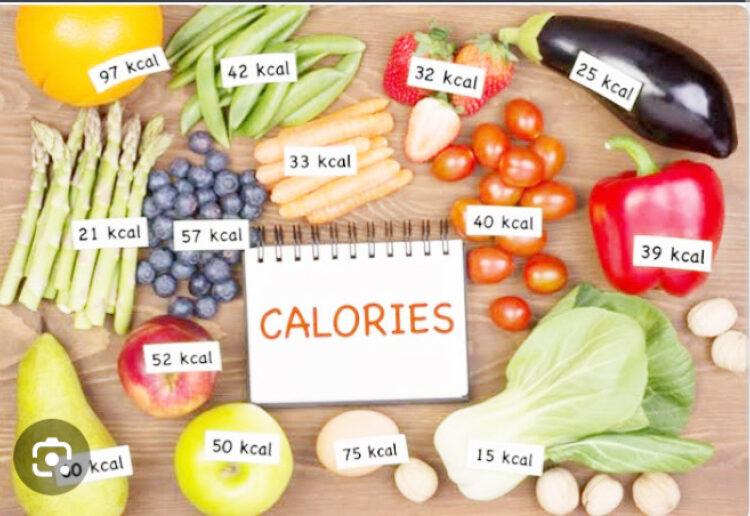When it comes to nutrition, the term “calories” is a fundamental concept that plays a vital role in maintaining a healthy diet and lifestyle. Understanding what calories are, how to count them, and their effects on health is pivotal for anyone striving for a balanced and nutritious diet
What Are Calories?
Calories are units of energy. They represent the amount of energy stored in food and beverages that our bodies use for various functions, including breathing, digestion, physical activity, and maintaining basic bodily functions. Essentially, calories are the fuel that keeps our bodies running efficiently.
Effects Of Calories On Human Health
Calories play a significant role in determining body weight and composition. Consuming more calories than the body needs leads to weight gain, while consuming fewer calories than the body requires results in weight loss. However, it’s essential to consider the quality of calories consumed, not just the quantity.
1.Metabolic Health: Caloric balance impacts metabolic health, including insulin sensitivity and cholesterol levels. By maintaining a balanced diet and managing calorie intake, individuals can support optimal metabolic function and reduce the risk of metabolic disorders.
2.Energy Levels: Caloric intake influences energy levels and overall vitality. Choosing nutrient-rich foods provides sustained energy throughout the day, whereas consuming high-calorie, low-nutrient foods can lead to energy fluctuations and feelings of fatigue.
3.Weight Management: Balancing calorie intake and expenditure is crucial for achieving and maintaining a healthy weight. Consuming excessive calories can contribute to obesity and related health issues, including diabetes, heart disease.
4.Nutrient Density: Opting for nutrient-dense foods those rich in vitamins, minerals, and other essential nutrients ensures that calorie intake is accompanied by valuable health benefits. Focusing on whole, unprocessed foods such as fruits, vegetables, lean proteins, and whole grains promotes overall well-being and helps prevent nutrient deficiencies.
How many calories should you Eat In a Day
The ideal calorie intake for a healthy person in a day varies depending on several factors, including age, gender, weight, height, activity level, metabolism, and overall health goals. However, there are general guidelines that can help determine a suitable calorie range for most individuals.
For adults, the following calorie ranges are often considered:
1.Sedentary Individuals: These are individuals who engage in minimal physical activity throughout the day. For sedentary adults, calorie intake typically ranges from 1,600 to 2,000 calories per day for women and 2,000 to 2,400 calories per day for men.
2.Moderately Active Individuals: These individuals engage in regular physical activity or have moderately active lifestyles. Moderate activity could include activities such as walking, light exercise, or moderate intensity workouts for 30-60 minutes per day. Calorie intake for moderately active adults may range from 1,800 to 2,200 calories per day for women and 2,200 to 2,800 calories per day for men.
3.Active Individuals: Active individuals have physically demanding jobs or engage in vigorous exercise or strenuous physical activity regularly. This includes individuals who participate in intense workouts, endurance training, or have physically demanding occupations. Calorie intake for active adults may range from 2,200 to 2,400 calories per day for women and 2,800 to 3,000 calories per day for men.
How to calculate calories in food
We will be using a simple meal: a turkey sandwich with some carrot sticks and an apple, as a practical example of how to count calories
Step 1: Identify the Ingredients
For our turkey sandwich, carrot sticks, and apple, here are the ingredients we’ll be working with:
Two slices of whole wheat bread
3 ounces (85 grams) of sliced turkey breast
1 tablespoon of mayonnaise
1 medium carrot
1 medium apple
Step 2: Find Calorie Information
Next, we need to find the calorie information for each ingredient. You can find this information on food labels, online calorie databases, or mobile apps
For this example, I got the calories of the ingredients from online calories database
Whole wheat bread (2 slices): 138 calories
Sliced turkey breast (3 ounces): 93 calories
Mayonnaise (1 tablespoon): 90 calories
Carrot (1 medium): 25 calories
Apple (1 medium): 95 calories
Step 3: Calculate Total Calories
Now, we’ll add up the calorie counts for each ingredient to find the total calorie count for our meal:
Turkey Sandwich:
Whole wheat bread: 138 calories
Sliced turkey breast: 93 calories
Mayonnaise: 90 calories
Total calories for the turkey sandwich: 138 + 93 + 90 = 321 calories
Carrot Sticks: 25 calories
Apple: 95 calories
Step 4: Add It All Up
Finally, we’ll add up the calorie counts for each component of the meal to find the total calorie count:
Turkey Sandwich: 321 calories
Carrot Sticks: 25 calories
Apple: 95 calories
Total calories for the entire meal: 321 + 25 + 95 = 441calories
Step 5: Recording and Tracking
It’s important to keep a record of your meals and their calorie counts. You can use a food diary, a mobile app, or a simple notebook to track your daily calorie intake. Recording your meals helps you stay mindful of your eating habits and ensures that you’re meeting your nutritional goals.
Takeaway:Regardless of calorie intake, the quality of the diet is equally important. A balanced diet rich in nutrient-dense foods such as fruits, vegetables, whole grains, lean proteins, and healthy fats is essential for overall health and well-being. Additionally, staying hydrated, listening to hunger and fullness cues, and practicing mindful eating habits are important aspects of maintaining a healthy relationship with food and meeting nutritional needs.
We’ve got the edge. Get real-time reports, breaking scoops, and exclusive angles delivered straight to your phone. Don’t settle for stale news. Join LEADERSHIP NEWS on WhatsApp for 24/7 updates →
Join Our WhatsApp Channel










